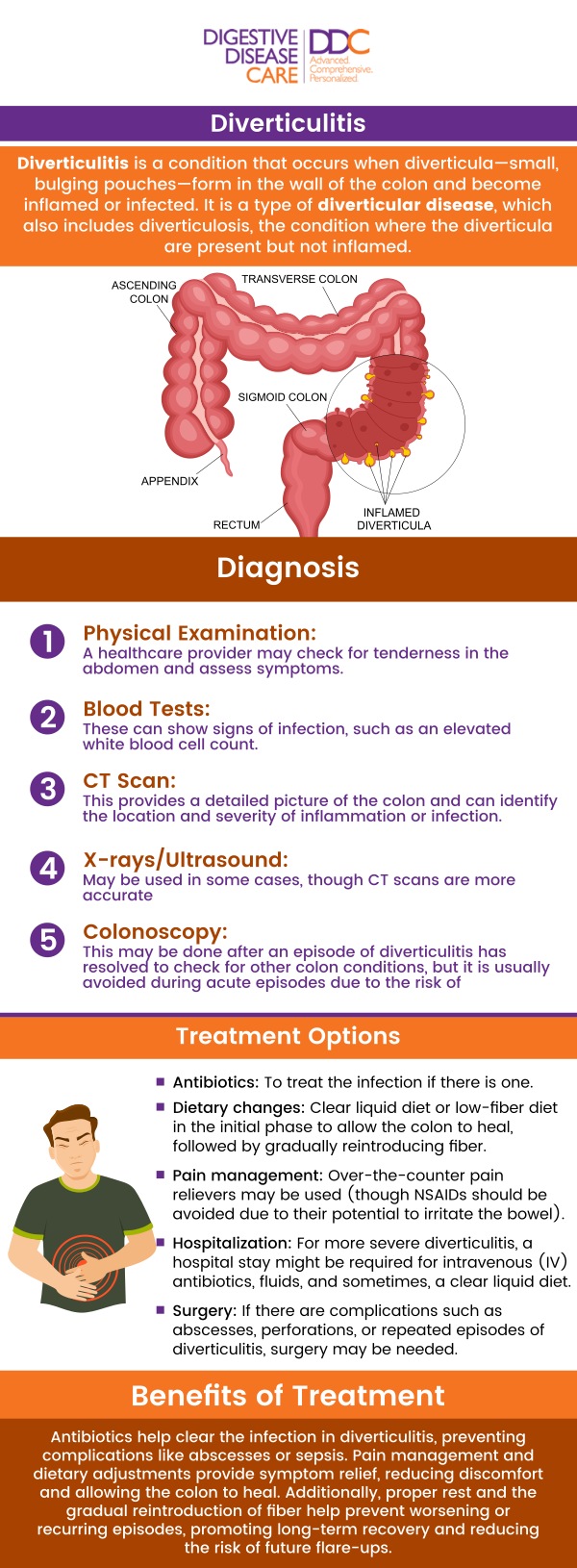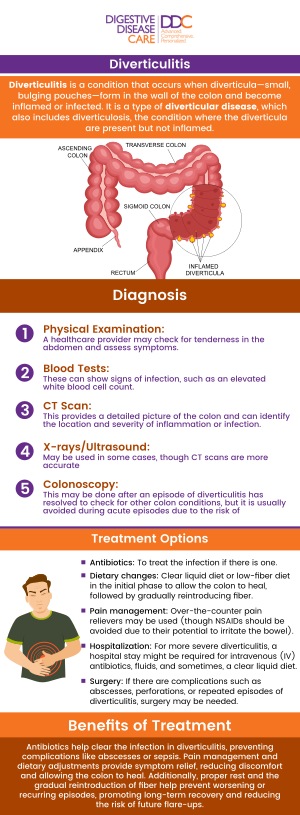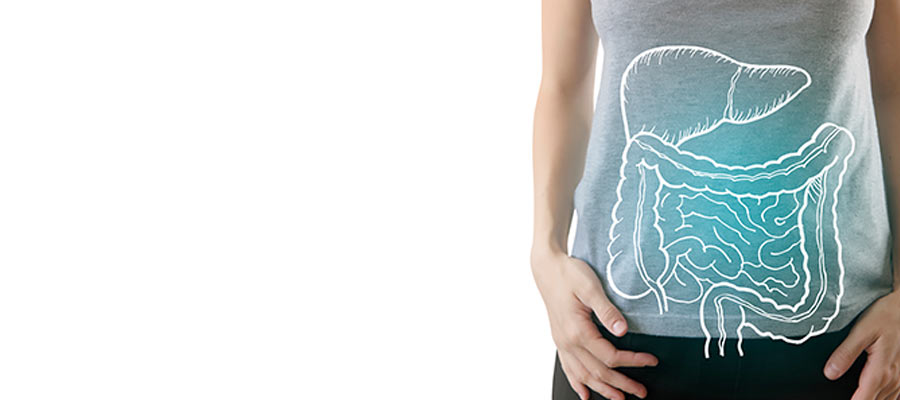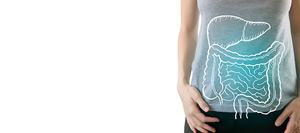Diverticulitis Treatment Specialist Serving New York Community
Diverticulitis is inflammation in your diverticula, which are small pockets that can develop inside your colon. At Digestive Disease Care (DDC), our board-certified gastroenterologists provide comprehensive and specialized care. For more information, contact us today or schedule an appointment online. We have convenient locations to serve you in Babylon NY, East Setauket NY, Forest Hills NY, Jericho NY, Lake Success NY, Melville NY, Mineola NY, Massapequa NY, New Hyde Park NY and Riverhead NY.




Table of Contents:
What is diverticulitis and how is it diagnosed and treated?
Why should I receive a colonoscopy?
The condition known as diverticulitis is an infection or inflammation of pouches – known as diverticula – which can form in your intestines. While the pouches themselves are not generally harmful and can show up anywhere in your intestines (which is a condition known as diverticulosis), if they become infected or inflamed, then you have developed diverticulitis. Diverticulitis can be minor or become severe with a largescale infection or perforation of the bowel.
Diverticulitis can also either be chronic or acute. With acute diverticulitis, you may have severe attacks of infection and inflammation one or more times. However, in the chronic form, these infections and the inflammation never completely clear up and may lead to a bowel obstruction. If the obstruction is not dealt with, you will experience abdominal pain and tenderness – which will increase with time – and you may feel nauseous and vomit.
If you think that you might have either condition – diverticulosis or diverticulitis – then the diagnosis is usually done either with a series of contrast images from a CT scan or X-ray or a colonoscopy. The method that your doctor chooses will be determined by the severity of your condition, as a colonoscopy can injure your intestine if you have an acute case of diverticulitis.
For treating the conditions, there are several options – both invasive and non-invasive. You may need to modify your diet to minimize the chances of forming an infection or your doctor may recommend a high-fiber diet to ensure that your bowels move regularly and also to reduce the odds of diverticulosis developing into diverticulitis. If you develop diverticulitis, then you need to see a doctor in order to avoid potentially life-threatening complications. The treatments for diverticulitis typically include diet modifications, antibiotics, and potentially surgery. The treatment options will depend on the severity of your diverticulitis.
There are several reasons why your doctor may recommend that you receive a colonoscopy. The most common reasons are:
• To investigate any intestinal symptoms or signs that you have, as a colonoscopy can help with diagnosing the causes of abdominal pain, rectal bleeding, chronic constipation or diarrhea, or other intestinal problems that you might have.
• If you have had polyps previously, then your doctor may recommend a follow-up colonoscopy procedure to see if you have formed more and remove any additional ones which is done to reduce the risk of developing colon cancer.
• Lastly, colonoscopies are most commonly performed to screen for colon cancer, if you are over the age of fifty and at the average risk of developing colon cancer, then your doctor may recommend one every ten years, or sooner, to screen for potential colon cancer.
Colonoscopies are a diagnostic and preventive tool of medicine, designed to help with the detection of colon cancer and the diagnosis of other conditions. It is important that you receive one if you have developed unexplained intestinal symptoms if you are above the age of fifty, or if you have an increased risk of colon cancer. Speak with your doctor about your concerns and follow their recommendations.
If you are in need of treatment for diverticulitis or are in need of a colonoscopy or other gastrointestinal treatment, then the specialists at Digestive Disease Care (DDC) are here to help. For more information on the treatments and screenings we offer, please visit us online or call us today. We have convenient locations to serve you in Melville NY, New Hyde Park NY, Forest Hills NY, Jericho NY, Mineola NY, Lake Success NY, Babylon NY, East Setauket NY, Massapequa NY, Riverhead NY and BEYOND.

Check Out Our 5 Star Reviews


Additional Services You May Like

Additional Services You May Like
- Abdominal Pain
- Acid Reflux
- Barretts Esophagus
- Bloating
- Capsule Endoscopy
- Celiac Disease
- Colon Cancer Screening
- Colonoscopy
- Constipation
- Crohns Disease
- Diarrhea
- Diverticulitis
- Esophageal PH Monitoring
- Fatty Liver
- Fibroscan
- Gallstones
- Gastroenterologist
- Gastric Chest Pain
- Gluten Intolerance
- Hemorrhoid
- Hemorrhoid Banding
- Hepatitis
- Irritable Bowel Syndrome
- Lactose Intolerance
- Pancreatitis
- Polyps
- Rectal Bleeding
- Stomach
- Ulcerative Colitis
- GI Urgent Care





